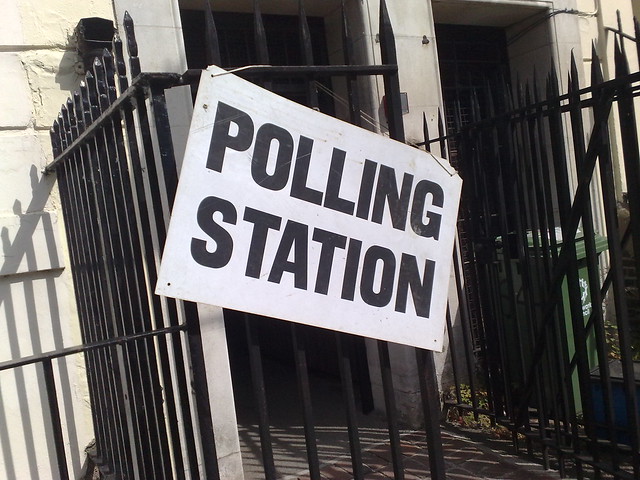
Today voters in 181 local authorities and councils across the UK will cast their votes to elect their local representatives. There are also elections for the London Assembly and three Mayoral elections, most prominently the election for the Mayor of London. Although officially concerned with local issues and local government, local elections in the UK are frequently taken to be large scale opinion polls on national political parties. When the results are announced they will inevitably be described by politicians and political commentators as (depending on the actual results, party affiliation and political inclination): a ‘triumph’, ‘disaster’, ‘bloody nose’, ‘strong message’, ‘resounding verdict’ and various other political clichés.
Are politicians and commentators actually justified in making these statements? Do votes in local elections actually reflect votes in general elections? There are many good reasons to think they are: the parties running are generally the same and vast amounts of evidence from political science suggest that voters use ‘second tier’ elections to express their opinions about national level politics. However, there are also several reasons to question the validity of local elections as a proxy for national elections: they are conducted across varying regions, turnout is typically much lower, the number of uncontested seats is much higher, they are increasingly conducted under a wide variety of electoral systems, and they are at least notionally ‘local’.
The actual numbers give mixed support for the idea that local elections tell us how well a party will do at the next election. Nearly two-thirds of the time the party that receives the most number of votes at local elections goes on the get the most votes at the next national election. On average estimates for the national level vote at local elections are different from the results of a subsequent national election by nearly 5%. These figures suggest that local election can give us a general idea of how well a party will do at the next election, but one that is only a rough estimate at best.

However using fairly straightforward statistical techniques it is possible to improve the predictive power of local elections quite substantially (the statistically minded reader can find the data and methodology here). Running a linear regression model that includes only the votes a party receives in a local election and dummy variables indicating whether it is an incumbent government party and controlling for the party being the Liberal Democrats improves the predictive power of local elections by 40%, reducing the average difference between the predicted and actual outcomes to 2.8 percentage points. The graphs of the predicted vote share illustrate the predicted results of the model and the actual results of the subsequent national election and show the predictive power or the model is fairly accurate.

Using the same data a logit regression model improves the predictive power of local elections to tell us who will win the most votes at the next general election, making correct predictions 86.21% of the time. This graph, illustrates the predicted probability for an incumbent and non-incumbent party winning the next election according to how much of the vote they receive. The graphs illustrate a strong incumbency bias in British elections: opposition parties need to perform better at local elections than incumbent parties to have the same probability of winning the most votes at the next election.
The results of my analysis are fairly clear. Using the right techniques local elections can give us a pretty good indication of how well parties might do at the next national election. Inevitably however most analysis of the results will simply reflect how many votes were cast for each party on the day and commentators will imagine what parliament will look like if the same results were for a general election. So as the results are released after the elections on Thursday remember to take them with a grain of salt: history suggests that on average they are likely to be different by 5 points come the next national election.
Chris Prosser is a DPhil student in Politics at St. Catherine’s College, Oxford.






No Comment